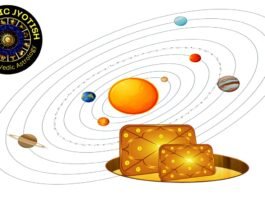In Vedic astrology, planetary significance refers to the unique qualities, energies, and influences attributed to each planet in an individual’s birth chart. These planets are believed to have a profound impact on various aspects of life, including personality traits, relationships, career, health, and overall well-being.
The planets in Vedic astrology are seen as cosmic forces that interact with and shape human existence. They represent different aspects of consciousness, energies, and archetypal qualities. The nine primary planets in Vedic astrology are the Sun, Moon, Mars, Mercury, Jupiter, Venus, Saturn, Rahu (North Node of the Moon), and Ketu (South Node of the Moon).
Each planet is associated with specific traits, elements, ruling signs, houses, and aspects. These associations create a unique combination in an individual’s birth chart, determining their strengths, weaknesses, and potentials. The placement of planets in different signs, houses, and their interactions with other planets through aspects can create various patterns and influences on different areas of life.
The planetary significations in Vedic astrology can provide insights into various aspects:
- Personality Traits: Planets influence an individual’s personality traits and behavioral tendencies. For example, the Sun represents self-confidence, leadership, and vitality, while the Moon symbolizes emotions, intuition, and nurturing qualities.
- Career and Profession: Planets play a crucial role in determining career inclinations and professional success. For instance, Mars is associated with energy, ambition, and competitiveness, making it relevant for careers in leadership, sports, or entrepreneurship.
- Relationships and Marriage: Planets influence relationships and marriage dynamics. Venus represents love, romance, and harmony, while Mars signifies passion and sexual energy. The placement and aspects of these planets can indicate compatibility and relationship dynamics.
- Health and Well-being: Planets are associated with specific body parts and health conditions. For example, Saturn is associated with bones, teeth, and chronic ailments, while Mars is linked to energy levels and physical strength.
- Spirituality and Inner Growth: Planets have spiritual significance and can guide individuals on their spiritual journey. Jupiter represents wisdom, expansion, and higher knowledge, while Ketu symbolizes spiritual enlightenment and detachment.
It’s important to note that the influence of planets is not deterministic, and individual free will and choices also play a role in shaping one’s life. A skilled Vedic astrologer considers the planetary significations in the birth chart, analyzes their interactions, and provides guidance to navigate life’s challenges and leverage opportunities.
Ultimately, Vedic astrology emphasizes self-awareness, self-development, and the alignment of one’s actions with the cosmic energies represented by the planets, helping individuals lead a more harmonious and fulfilling life.





